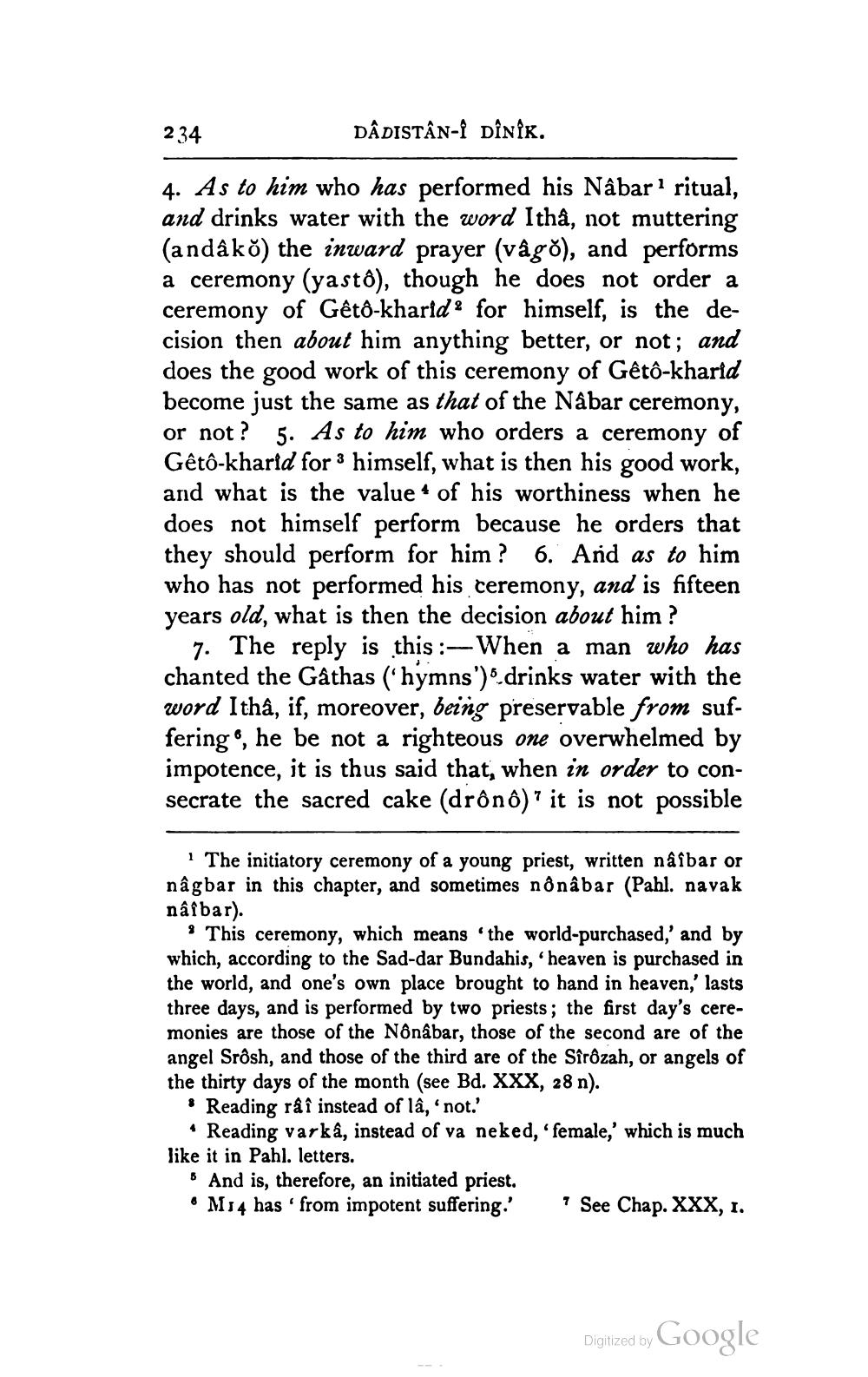________________
234
DÂDISTÂN-Î DÎNÍK.
4. As to him who has performed his Nâbarritual, and drinks water with the word Ithâ, not muttering (andâ ko) the inward prayer (vågo), and performs a ceremony (yasto), though he does not order a ceremony of Gêtô-kharid? for himself, is the decision then about him anything better, or not; and does the good work of this ceremony of Gêtô-kharid become just the same as that of the Nabar ceremony, or not? 5. As to him who orders a ceremony of Gêtô-kharid for 3 himself, what is then his good work, and what is the value of his worthiness when he does not himself perform because he orders that they should perform for him ? 6. And as to him who has not performed his ceremony, and is fifteen years old, what is then the decision about him ?
7. The reply is this :- When a man who has chanted the Gâthas ('hymns') drinks water with the word Itha, if, moreover, being preservable from suffering ®, he be not a righteous one overwhelmed by impotence, it is thus said that, when in order to consecrate the sacred cake (drônô) ? it is not possible
The initiatory ceremony of a young priest, written nâibar or nagbar in this chapter, and sometimes nônâbar (Pahl. navak nibar).
This ceremony, which means the world-purchased,' and by which, according to the Sad-dar Bundahis,'heaven is purchased in the world, and one's own place brought to hand in heaven,' lasts three days, and is performed by two priests; the first day's ceremonies are those of the Nônkbar, those of the second are of the angel Srôsh, and those of the third are of the Sîrôzah, or angels of the thirty days of the month (see Bd. XXX, 28 n).
Reading râî instead of lâ, not. • Reading varka, instead of va neked, 'female,' which is much like it in Pahl. letters.
o And is, therefore, an initiated priest. * M14 has' from impotent suffering. See Chap. XXX, 1.
Digitized by Google




